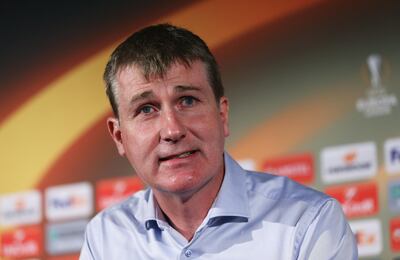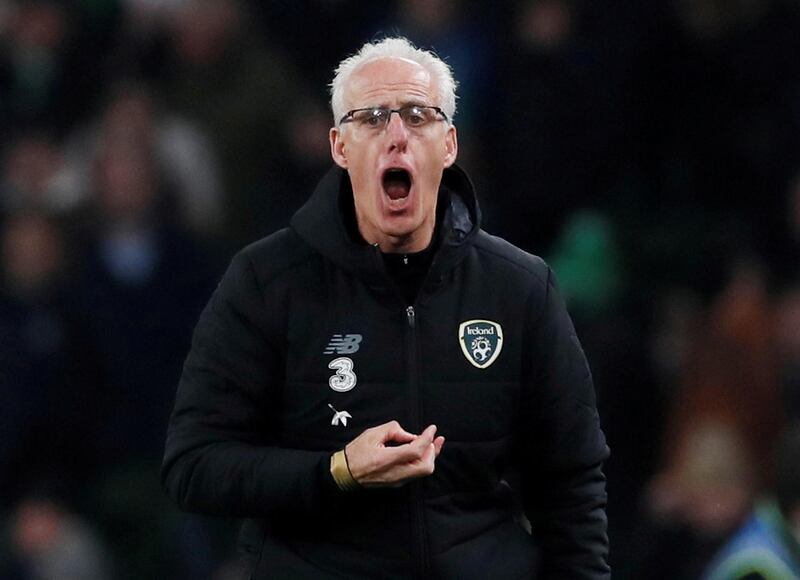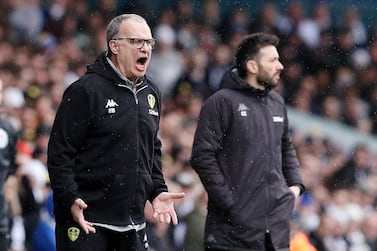Mick McCarthy has forged a reputation as a straight talker, often with an idiosyncratic turn of phrase that betrays his Yorkshire roots. He was being unusually diplomatic, therefore, when he described his removal as Republic of Ireland manager as “bittersweet”.
The sweet element of it is harder to identify but perhaps McCarthy was merely showing a sense of perspective. Others have suffered more from the coronavirus outbreak and, as he noted, Denmark coach Age Hareide is in the same situation.
Each was due to stand down after Euro 2020, with a replacement already arranged. But then Euro 2020 became Euro 2021. Ireland may or may not be in it. McCarthy’s first reign will be remembered for Saipan, for the bust-up that led to Roy Keane’s explosive exit from the World Cup. His second is less controversial and less conclusive.
It is a product in part of Ireland’s strange succession planning. Stephen Kenny, the highly-rated former Dundalk manager was in charge of the Under-21s and always due to take over in August. Now his tenure includes a play-off semi-final against Slovakia; potentially two major tournaments in as many summers, maybe none.
McCarthy’s sometimes unfair reputation as a pragmatist meant he never had the sheen of a long-term or ambitious appointment. Nor, indeed, did the football belie that image. Ireland only lost once in a pool including two teams who reached the World Cup’s last 16, in Switzerland and Denmark, but only scored seven goals in eight games, despite playing two of them against Gibraltar.
Kenny brings the promise of a more progressive brand of play that could finally elevate Irish football beyond kick and rush, graft with precious little craft. “I disagree with the viewpoint that we have to play in a direct style because it suits our DNA as a nation,” the new manager told the Athletic in December.
McCarthy’s Ireland were direct. In his defence, Ireland’s rearguard was greater than the sum of its parts. Only Ukraine, Turkey and Belgium conceded fewer goals in qualifying.

He was working with what may be the least gifted group of players a small country has had in at least four decades. There was no Keane, whether Roy or Robbie; no Liam Brady, Paul McGrath, Damien Duff, Andy Townsend, Kevin Sheedy, Ray Houghton or David O’Leary.
Instead, McCarthy, who has made to make the most of limited resources in his club career, had a familiar challenge. “I think I'm leaving Stephen with a healthy balance,” he said.
In one respect, he did not prioritise his successor. Perhaps, though, he could not. There was nothing futuristic in bringing back Glenn Whelan at 35 but it is worrying how few of Ireland’s premier players are under 28.
McCarthy’s always felt a transitional appointment and, in a sense, Ireland have been waiting. In Aaron Connolly, 20, Michael Obafemi, 19, and Troy Parrott, 18, they have three young forwards who may yet offer a goal-shy side added incision, but given their ages, their combined tally of four caps reflects the reality Kenny, not McCarthy, could become the first manager to benefit from their talents.
The realist in McCarthy may think that, in an era of reduced resources, perhaps the Irish FA could not afford to pay both him and Kenny for another 12 months. In a generous statement, he said: “It’s been brilliant; I’ve loved being back.”
The strange nature of his exit means he was neither success nor failure this time around. But, unglamorous as he feels, he probably ranks second only to Jack Charlton ever among Ireland managers, above the more decorated pair of Giovanni Trapattoni and Martin O’Neill. His second spell did not diminish that standing, despite the inconclusive ending.







